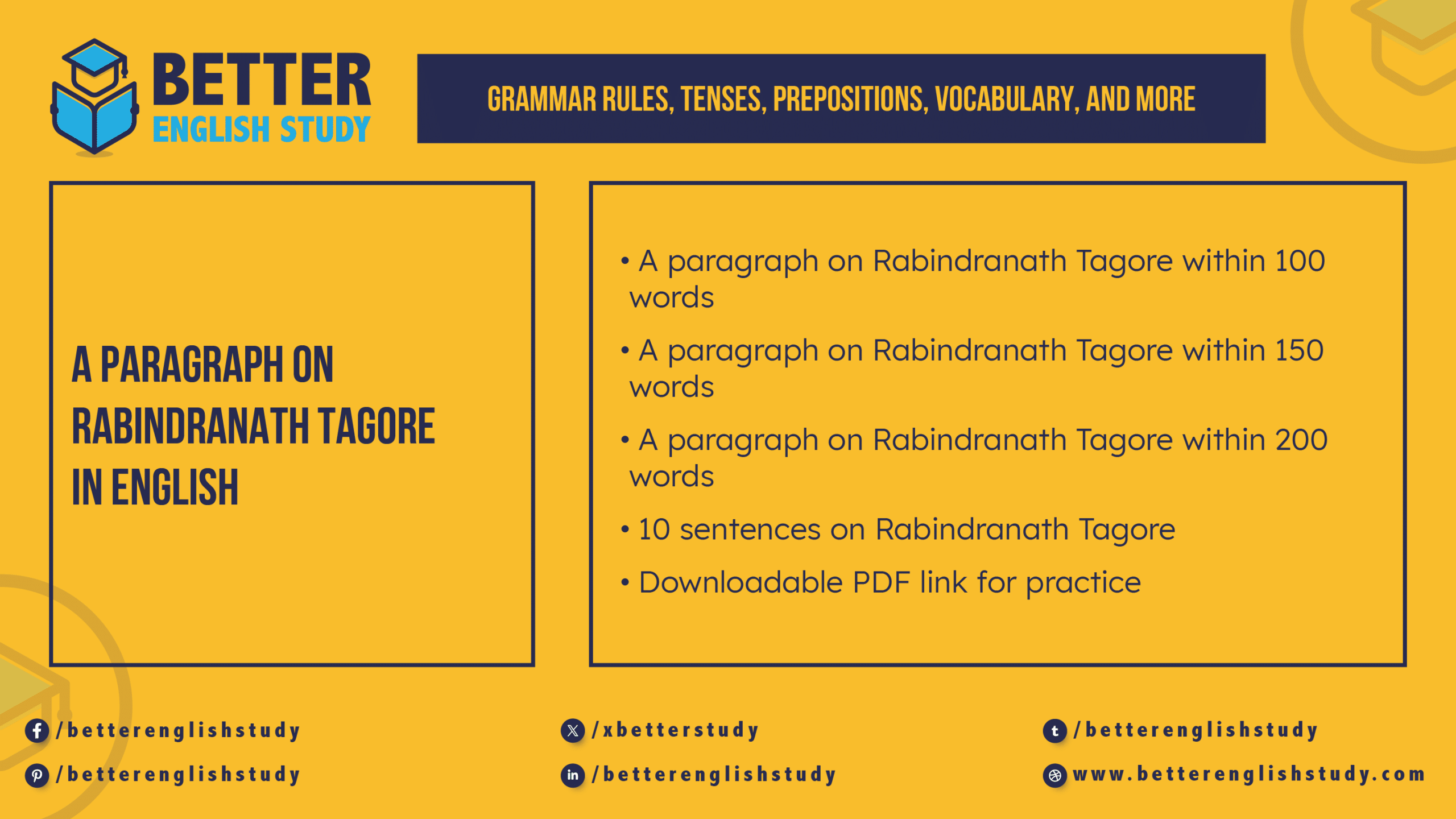
Rabindranath Tagore was a remarkable poet and philosopher.
A Paragraph on Rabindranath Tagore Within 100 Words
Rabindranath Tagore was a famous Indian poet, writer, and philosopher born on May 7, 1861. He is best known for his profound poetry and songs that express deep emotions and themes of love, nature, and spirituality. Tagore was the first non-European to win the Nobel Prize in Literature in 1913, recognizing his significant contributions to literature. His most famous work, “Gitanjali,” is a collection of poems that reflect his thoughts on life and the universe. Tagore’s influence extends beyond poetry; he also composed music and played a vital role in India’s cultural and educational movements.
A Paragraph on Rabindranath Tagore Within 150 Words
Rabindranath Tagore, born on May 7, 1861, in Calcutta, India, was a multi-talented poet, playwright, painter, and philosopher. He is best known for his literary contributions, especially his poetry collection “Gitanjali,” which won him the Nobel Prize in Literature in 1913, making him the first non-European to receive this honor. Tagore’s works often explore themes of nature, spirituality, and human emotion, showcasing his deep connection to the world around him. In addition to poetry, he composed numerous songs, some of which are now integral to Bengali culture. Tagore was also a visionary educator, founding the Shantiniketan school, which emphasized a holistic approach to education. His ideas on nationalism and culture significantly influenced India’s struggle for independence. Tagore’s legacy continues to inspire people w orldwide, as his works promote love, harmony, and the beauty of life.
A Paragraph on Rabindranath Tagore Within 200 Words
Rabindranath Tagore, born on May 7, 1861, in Calcutta, India, is celebrated as one of the most influential literary figures in history. A poet, playwright, musician, and philosopher, Tagore’s works reflect a profound understanding of nature, humanity, and spirituality. His most renowned work, “Gitanjali,” is a collection of poems that express deep emotions and thoughts on life, love, and the universe. This masterpiece earned him the Nobel Prize in Literature in 1913, making him the first non-European to achieve this honor. Tagore’s writings often blend traditional Indian themes with universal human experiences, making them relatable across cultures. Beyond poetry, he was a talented composer, creating songs that resonate with the Bengali people and beyond. Tagore was also a pioneer in education, establishing Shantiniketan, a school that promoted a holistic approach to learning. His views on nationalism and cultural identity played a crucial role in India’s struggle for independence. Tagore’s legacy continues to inspire and uplift people around the world, as his works emphasize love, peace, and the beauty of life.
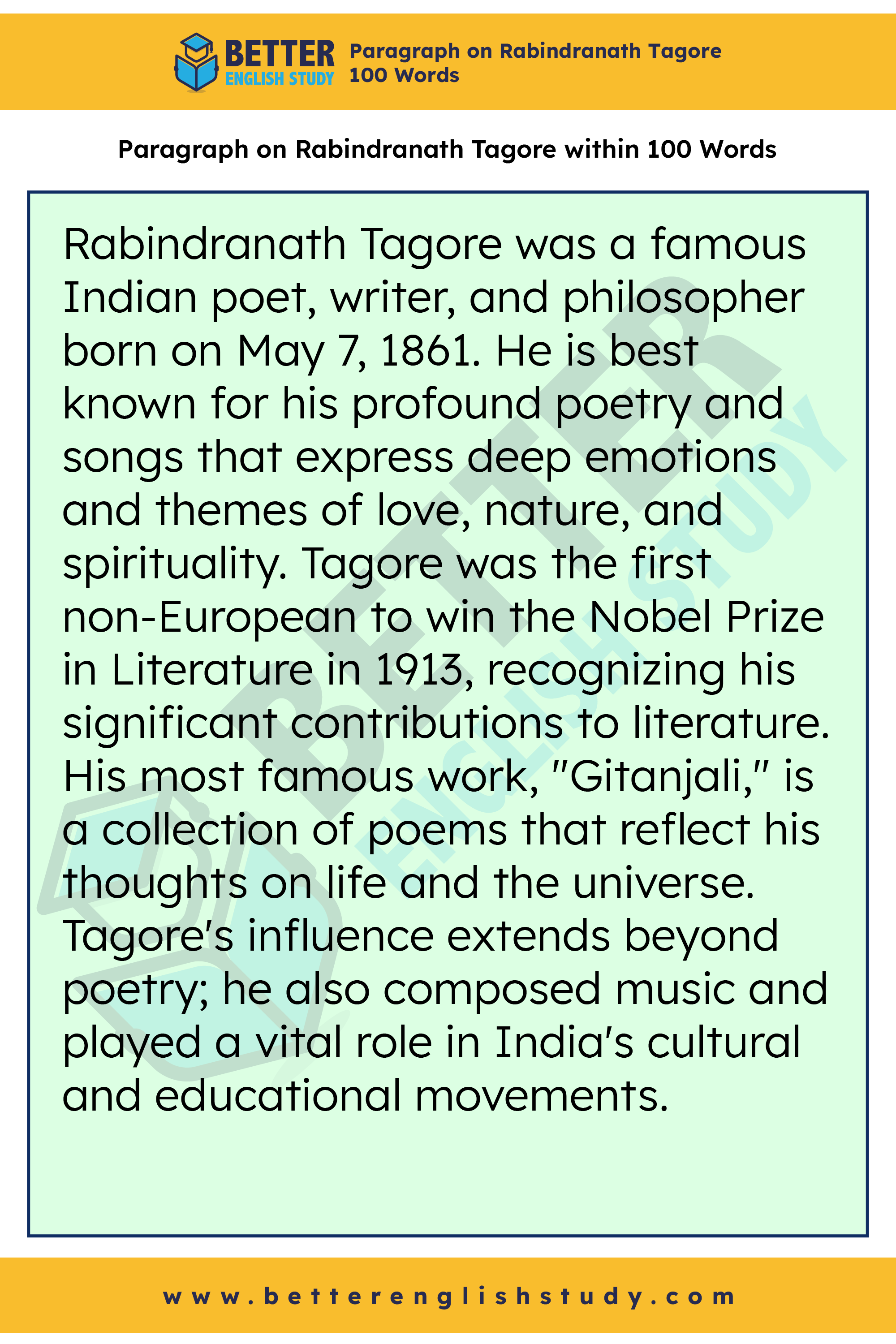
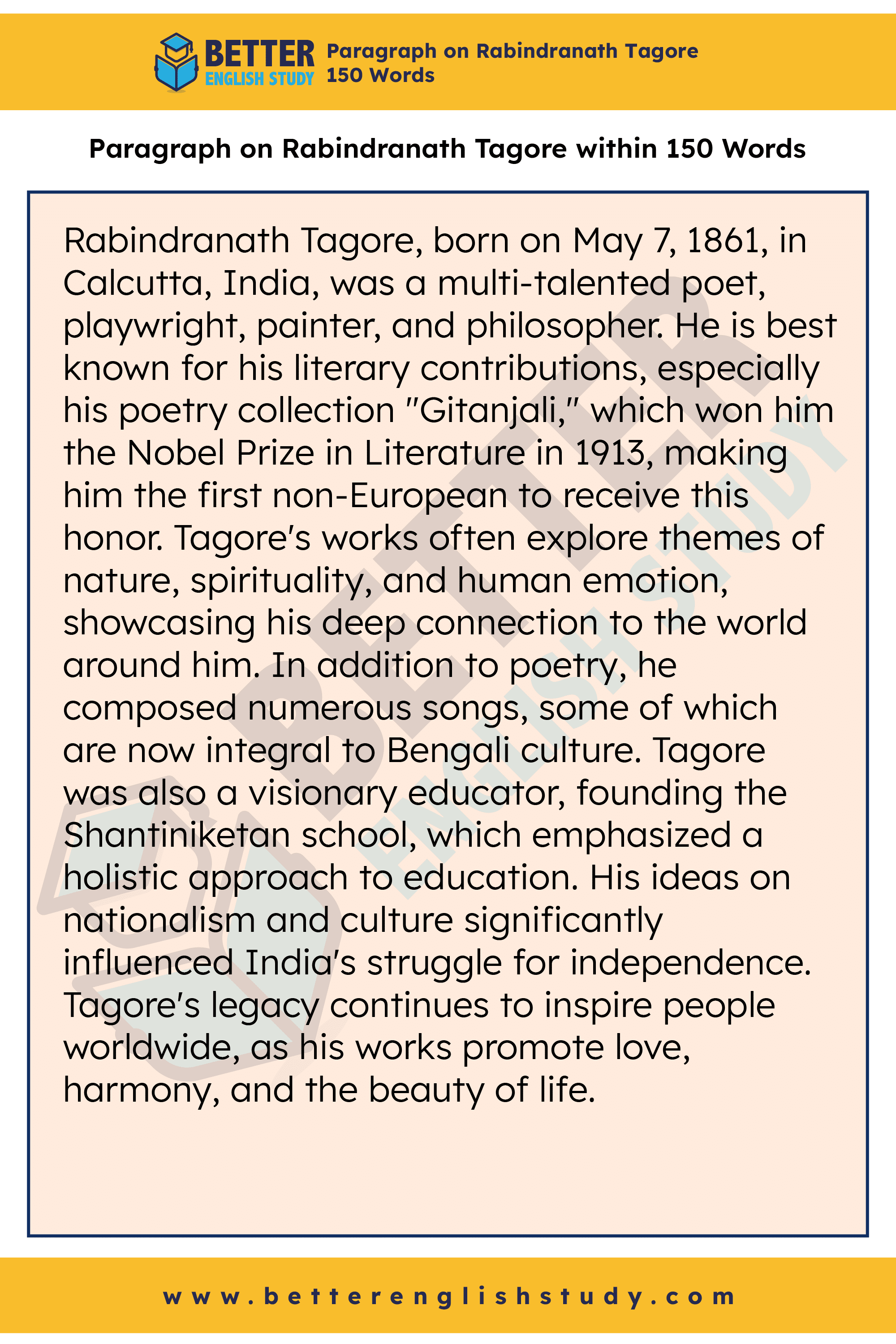
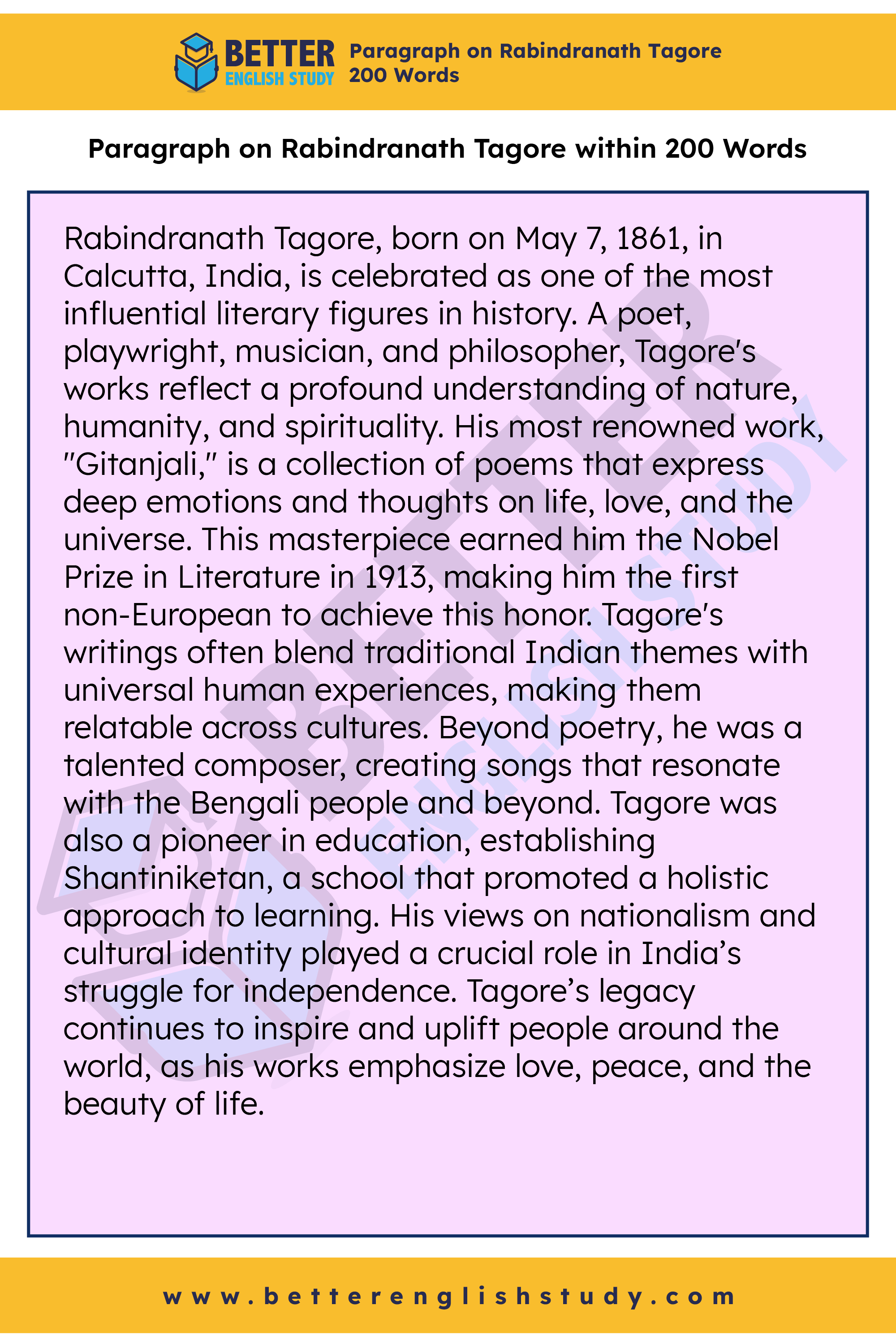
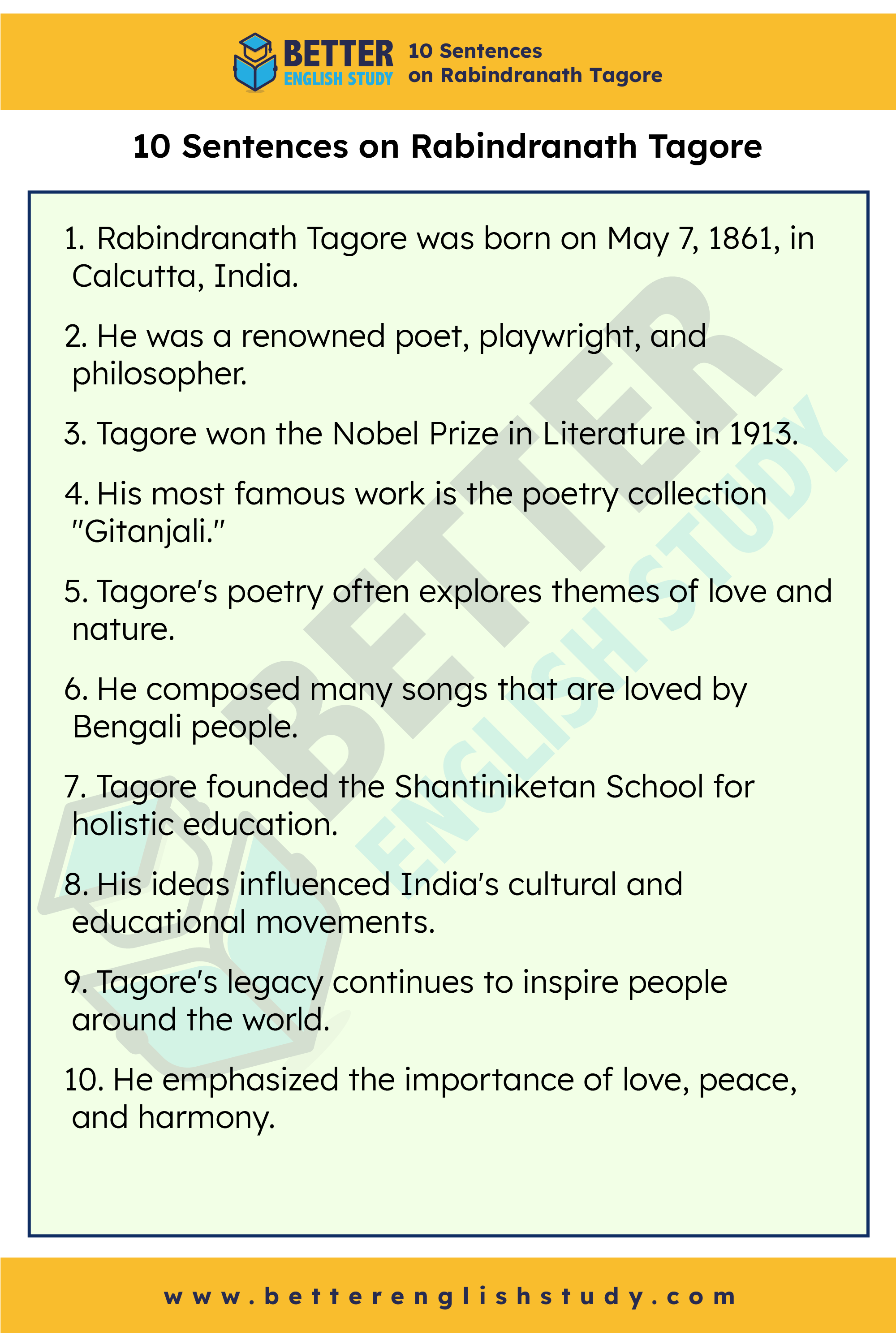
10 Sentences about Rabindranath Tagore
- Rabindranath Tagore was born on May 7, 1861, in Calcutta, India.
- He was a renowned poet, playwright, and philosopher.
- Tagore won the Nobel Prize in Literature in 1913.
- His most famous work is the poetry collection “Gitanjali.”
- Tagore’s poetry often explores themes of love and nature.
- He composed many songs that are loved by Bengali people.
- Tagore founded the Shantiniketan School for holistic education.
- His ideas influenced India’s cultural and educational movements.
- Tagore’s legacy continues to inspire people around the world.
- He emphasized the importance of love, peace, and harmony.
Meanings of Difficult Words
| Word | Meaning | Synonyms |
|---|---|---|
| Philosopher | A person who seeks wisdom or knowledge | Thinker, sage, scholar |
| Nationalism | A strong sense of pride in one’s country | Patriotism, loyalty |
| Legacy | Something handed down from the past | Heritage, inheritance, tradition |
Conclusion
Rabindranath Tagore was a remarkable figure whose contributions to literature and education continue to inspire people around the world. His emphasis on love, spirituality, and humanity makes his work timeless and relevant.
